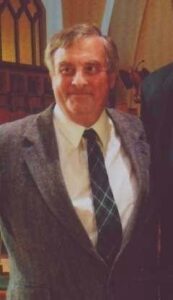Robert J. H Mick Papers
Originally a proponent of fluoridating the water supply, the dentist Robert J.H. Mick became an ardent opponent following animal studies he conducted in the late 1940s. Although he alleged that he was threatened with court martial for his views while serving in the Army in Germany between 1953 and 1956, Mick has remained a high profile professional critic of fluoridation, famously offering a $100,000 prize to any one who could prove that fluoridation of water was healthy. The prize remained unclaimed. Mick ran as a Republican for congress in New Jersey in 1970, largely as an antifluoridation crusader.
The Mick Papers contain a small quantity of correspondence, talks, and affidavits relating to a deacdes-long career in the antifluoridation movement, as well as publications and other materials relating to fluoridation of water supplies.

